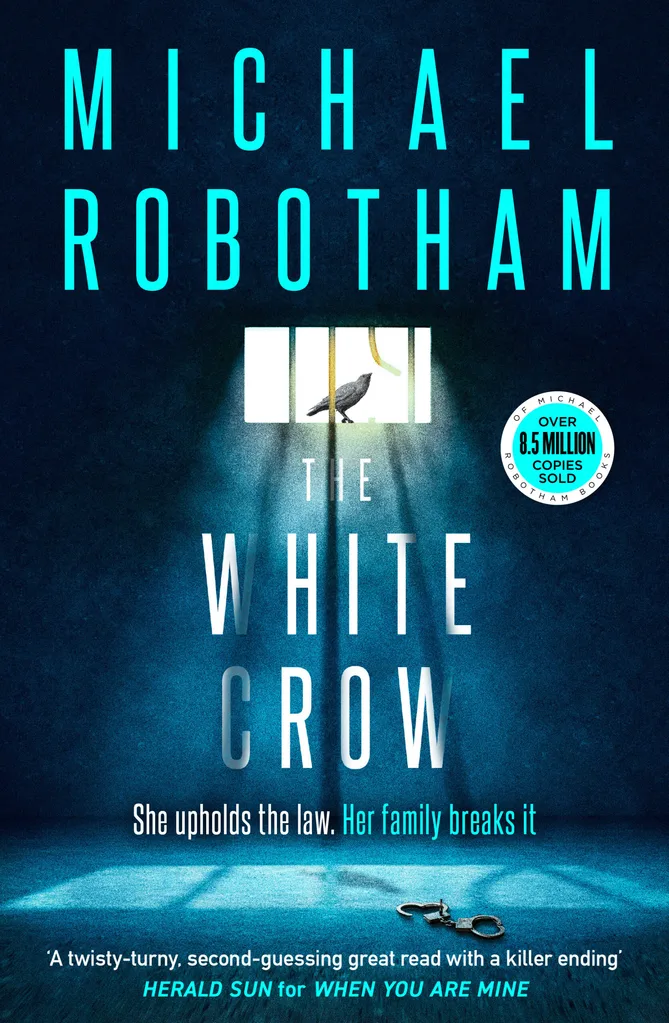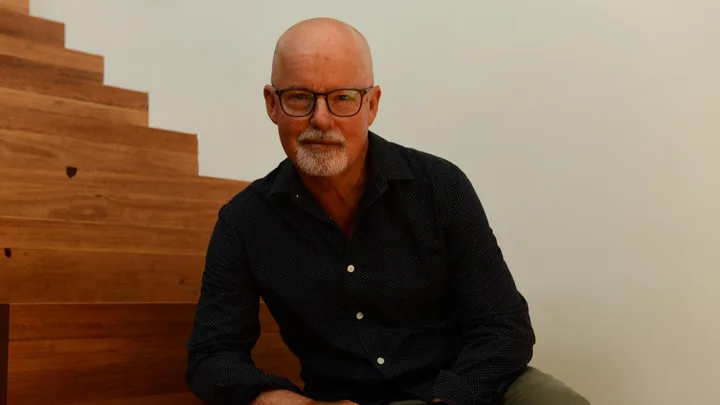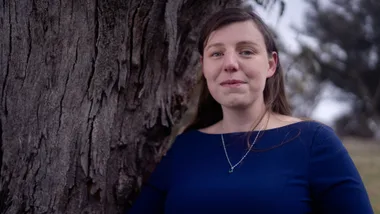AWW: Philomena McCarthy is a police officer whose father and uncles are notorious gangsters. When you introduced readers to Philomena in When You Are Mine you described the novel as a standalone thriller. Why did you bring her back?
Michael: I love that set-up and so initially it was purely stand-alone. I wanted to do a book about coercive control and domestic violence, particularly about police officers who fail to investigate domestic violence when the perpetrators are fellow police officers. Also, as a victim of domestic violence, where do you go when the very people who should protect you are where your husband works, or your partner, works? And he would have access to phone records, vehicle records, the location of every women’s shelter. There is nowhere you can hide. So, to me it was a nightmare scenario.
I guess it was because I fell in love with the family. The brothers, they’re sort of lovable psychopaths. They’re old school. They’re not into sex trafficking or drug-running. They’re old school East London crims that began by ripping off people at market stalls and Petticoat Lane and then selling stuff that fell off the back of a truck.
They are roughly based on a real criminal family that profited during the London Olympics because they controlled nearly every piece of scaffolding that was erected and bit of concrete that was laid … and they became very, very rich me. So, I sort of based them on that.
I love how politically incorrect they are. They’re gentlemen but they’re a bit lost in this world of political correctness. Darragh is my favourite character. He’s likened to Winnie the Pooh because long words do bother him. He is a very dangerous psychopath, but he is also a lovable psychopath.
I sensed you were having great fun with the McCarthy brothers.
They get the best lines! I had a lot of fun with them. I looked at the dynamic of Phil and her family and I could just see that they will find ways of trying to drag her into their world. And also, for Phil, it’s dawning on her, who are the real criminals? Are the bigger criminals in the police force or are they in her family? I like that dynamic as well.
How do you make them sufficiently menacing, while also showing why Philomena has such strong feelings of love and loyalty towards them?
It’s tricky. Many, many years ago when I was ghostwriting for a brilliant forensic psychologist who was involved in profiling criminals, he used to talk about the fact that even serial killers had a mother and that mother loved them. It’s also one of those things … how you can humanise someone by having them be nice to an animal. You can show that they’re not all bad.
I think it is a balancing act with them because they’ve obviously done very dangerous things and very illegal things in their time, but I guess I’m trying to fudge it a bit and say, well they’ve probably done it to people who are worse than they were. But the truth is they are dangerous men and it’s not as if I can claim they’re Robin Hood figures either. It’s not as if they’re robbing from the rich to give to the poor.
A lot of it comes down to humanising people with humour … and in this case to show the family dynamic of how much they love their family and how close knit the family is.
In the first book, Philomena has been estranged from her father for 10 years. When she finally meets up with the family again, the way they welcome her back in, it’s as if she’s never gone and she discovers that, all this time she thinks that her father has had nothing to do with her, but he was there the day she graduated from the police force. He was in the crowd. He was watching over her the whole time, all of which is showing that that’s what a loving father does.
I don’t think I’d ever cried while reading crime novels until I started reading yours. You always sneak in some tender moments.
I’m glad you do because I sob every time! The book I’ve just finished for next year, people are going to cry through the last 25 per cent of it.
I suppose that’s how you know it’s working, if it’s making you cry and you know what’s going to happen.
Yeah! I’m doing the twelfth re-write and I’m crying on the twelfth re-write, but then again I cried at Finding Nemo.

Part of what makes your novels so compelling is the details of the police procedures. How rigidly do your characters abide by real-world protocols and procedures? Do you ever have a plot line that is foiled by the fact that it wouldn’t be possible in a real investigation, or are you flexible for the sake of raising the stakes?
You have to be a little flexible. Anyone who’s ever spent any time in a courtroom knows that when you read a courtroom novel, let’s say a legal thriller, they’re nothing like real courtrooms because they spend half the time just having arguments and discussions and it takes weeks and weeks and weeks to get to a certain point. There’s a stylised version of it. In reality it can take two weeks to get DNA tests back but in a novel you’ll get them back in a couple of days.
So, there’s certain things that you can fudge. Most of the police that I use to check my books are aware of the fact that I need the story to work so they’ll normally give me advice to say, “Look, that’s not correct.” Or they’ll give me advice on how to make it more correct. But they’ll understand that I won’t get away with doing something which police would never, ever do. They’re not going to torture a suspect or something. But they will let me know that something like, okay, timeframe-wise it would normally take longer but that’s not beyond reason.
It’s a bit like dialogue. You can read a book and think that the dialogue was absolutely amazingly well-done. But it’s probably a stylised form of dialogue. You know how you have that argument with your partner and you think of the killer one-liner, but about half an hour too late. Well in novels you get to put the killer one-liner in, so the dialogue can be really snappy, and punchy and flow. But it’s slightly stylised because people probably aren’t quite as witty and as quick in real life as they are in novels.
Each book is packed with so many characters, and each character is vivid. In The White Crow we have DCI Brendan Keegan who has OCD and is contemplating his ruined marriage. I could easily imagine him as a protagonist. How do you decide which characters get to be the heroes of their own series? What are the essential elements of a protagonist?
I think Phil was always going to be the main character. Sometimes when you have someone like Phil and Brendan Keegan in the same scene, I have a choice: Whose point of view am I going to have? It’s the same when Phil is with her Dad. I can be with Phil, or I can be with her Dad, but I’ve got to choose who’s going to have the point of view in that scene. A lot of that is down to balance and who’s going to get the most out of it.
When actors act, they always say to themselves, what do I want out of this scene? What’s my motivation? I guess it’s the same when you’re writing each character, [you] decide who should get the biggest say.
Because I don’t plot, there are some times when I’ll create a character and I’ll think they will probably die at some point in this book, or something bad will happen. But then I’ll fall in love with them, or I will like them so much that I will think, no I can’t hurt them.
Something you learn very early on is even with a very small character, you have to find a very compelling way of describing them because they might be a small character but they could turn up 200 pages later and you need the reader to remember them.
You mentioned that the McCarthy brothers are loosely based on a real crime family. Your book The Secrets She Keeps was based on the 1994 kidnapping of Abbie Humphries and fans will know criminal psychologist Paul Britton was a great inspiration to you. Do you always look to true crime for inspiration?
I never use the word inspiration and I’m not a big true crime watcher or reader or listener. This was more a serendipitous case. I’d decided on the story before I knew about the crime family, so it wasn’t as if I came across the crime family and thought: Oh, I’ll do a policewoman that comes from a bunch of gangsters.
I’m a great lover of Lock, Stock and Two Smoking Barrels and Snatch and the Guy Ritchie, London, gangster, geezer type films. I spent 12 years working in London and … one of the books that I ghost wrote many years ago was for a guy called Bruce Reynolds. He was the mastermind behind the great train robbery, and so he was east-end royalty when it came to criminals.
He was more the country house thief, the train robber, rather than the Kray twins who were psychopaths. But I guess I met people like Bruce and they fascinated me. I thought, well who are the new gangsters? Who are the modern-day crime families? I came across some stories about this particular guy who had made a fortune during the London Olympics and I thought, that’s the sort of thing I can use.
When you’re beginning a new book, do you start with character, or do you start with an intriguing crime?
I probably start with a what if moment. In this case it would be, ‘What if you had a young London police officer who came from a criminal family?’ Initially when I came up with the idea I thought is it actually possible? Can you join the London Metropolitan Police if you come from a criminal family. And you can but you can’t have direct day-to-day links with them. But just the fact that you had an uncle or a father who has [committed] terrible crimes, doesn’t mean you are going to be tainted with that forever. So, it’s normally a what if moment.
Like, Life or Death [Michael’s acclaimed 2014 novel which won the Gold Dagger Award] was, ‘What if a man escaped from prison the day before he was due to be released?’ That was based on a real-life paragraph in a paper about a man who escaped after serving 36 years in prison, the day before he was due to be released.
I come up with the intriguing premise and then I create the characters. I can’t say the characters tell the story but sometimes they lead me. Sometimes they don’t want to do what I want them to do, but we work it out between us.
Can we expect to see more of Philomena McCarthy?
Yeah. It’s not the next book. The next book, which will be our next year, will be my 20th novel and it will be the very first one I set in Australia. So, I’m coming home after 20 years. I’m very excited and very nervous about that one. I’m just finishing that one up now.
My publishers around the world have actually fallen in love with Philomena and they’ve said, ‘Can we have another one of those?’ So I’m just starting to think about what sort of terrible things I can do to Philomena and her family.
Wow, an Australian novel. I read that you were told, about 15 years ago, to never set a book in Australia.
That was because no Australian book had ever been a successful Australian crime novel but that was before Jane Harper and Liane Moriarty and so many others. I’ve re-written a book that I wrote when I was 25 years old. It was the very first book I ever wrote, and it was almost published in the UK. I was told that if it was set in England, Ireland, Scotland or Wales they would have published it in a heartbeat but because it was set in Australia it was too hard to sell.
It’s been extensively re-written. It’s a very different book. The main characters are the same but there are probably only six to eight scenes that were in the original book that survived. It’s set in a small country town like the one that I grew up in.


